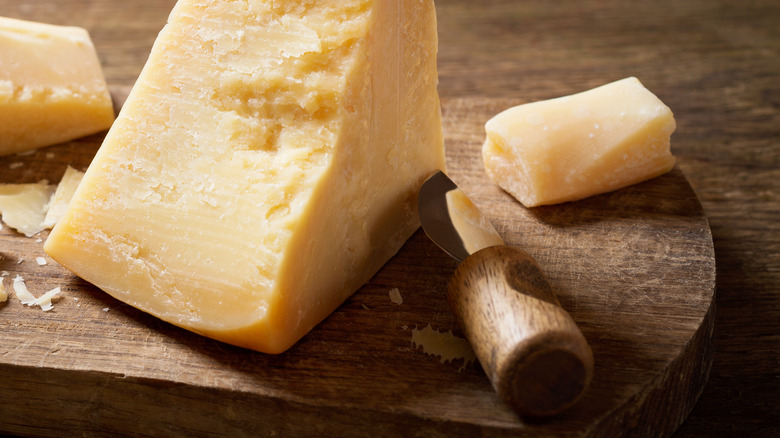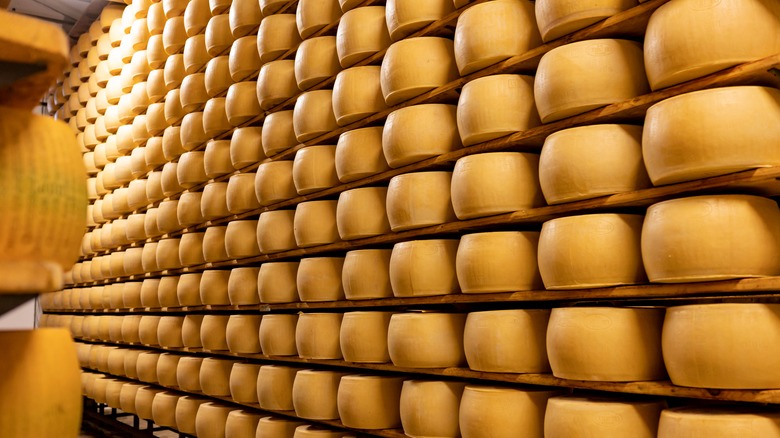Why You Shouldn't Try Aging Cheese At Home
It can be difficult to understand how exactly cheese and alcohol are made, mainly because it's not entirely easy to nick a recipe off the internet and make a wheel of Parmigiano Reggiano or a bottle of whisky at home. There's a reason cheesemaking and alcohol distilling is best left to the experts, some of whom have spent years learning the craft. And all the many factors that go into the making of cheese, there's one thing that's particularly tricky to achieve: the aging process.
The process of aging cheese is known as affinage and there's some science behind this. According to Vinepair, aging essentially affects three things in cheese: protein, fat, and lactose. As cheese is aged, lactose ferments into lactic acid, whereas the protein and fat molecules break down. This not only makes the cheese lose moisture as it ages, but it also brings about a change in both its taste and texture. Aging gives the cheese a unique flavor profile that's is hard to achieve otherwise.
But this doesn't mean that all types of cheese can be aged, and it certainly doesn't mean cheese should be aged at home. Kate Neumeier Clarke, president and CEO of Wisconsin Aging and Grading Cheese tells Mashed that the process of aging cheese depends on certain controlled conditions and doesn't recommend trying it at home.
Aging cheese requires a controlled environment
While the idea of buying cheese from a store, sealing it in an airlock bag, and popping it in the refrigerator thinking that it will age is a popular DIY method on the internet, it's not as easy as that. "It is important to have a consistent temperature and humidity in the location where cheese is aged, as well as constant monitoring that the cheese is developing according to its standard for best flavor, texture, aroma, etc," says Kate Neumeier Clarke, president and CEO of Wisconsin Aging and Grading Cheese.
Cheese Professor explains that some basic conditions are uniform across all cheeses, but that different varieties of cheese thrive under varying environments. For example, a cheddar crafted for the purpose of aging will begin with less moisture and more salt compared to those meant to be eaten fresh (per Vinepair). Besides humidity and temperature, how cheese ages will also depend on the airflow it gets and the Ph of the air in which the cheese is aging, all of which are difficult conditions to maintain at home.
For a cheese to be aged to its full potential, it needs to be monitored throughout the aging process, says Clarke. Those who inspect, monitor, and license cheese are highly skilled, trained, and even certified. If you're expecting that vacuum-sealed bag of store-bought cheese to age unattended in your refrigerator, it will probably only age into a block of mold.

